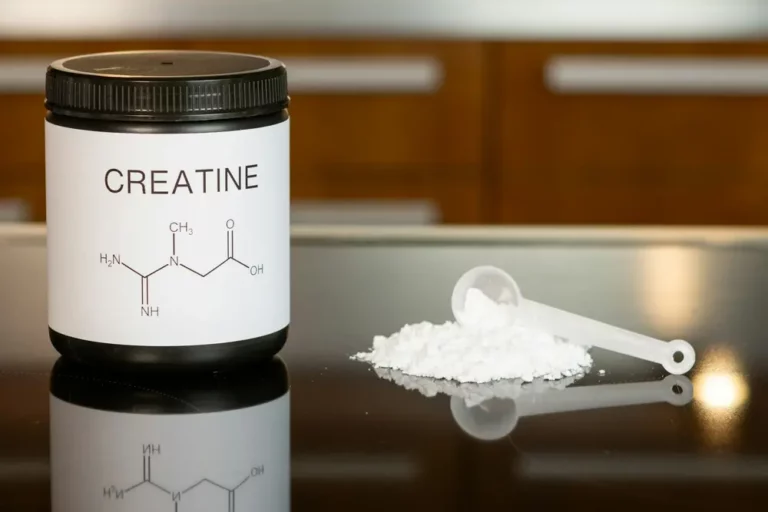Does C4 Pre-Workout Include Creatine? Benefits & Side Effects Explained
When it comes to fueling my workouts, I’m always on the hunt for the best supplements to give me that extra edge. Lately, I’ve been curious about one of the most popular pre-workout supplements on the market, C4. Specifically, I’ve been wondering, does C4 have creatine? It’s a question that seems simple, but the answer can greatly impact your fitness journey.
Creatine, as many of you might know, is a powerhouse when it comes to boosting performance in the gym. It’s been shown to enhance strength, increase lean muscle mass, and help muscles recover more quickly during exercise. So, naturally, knowing whether C4 includes this key ingredient could make a big difference in deciding if it’s the right pre-workout for me—and maybe for you too. Let’s dive into what I found.
Overview of C4 Pre-Workout Supplement
When I first got my hands on a tub of C4, I was curious about all the buzz surrounding this popular pre-workout. It’s been a staple in my gym bag, and I’ve spent quite some time digging through its composition and understanding how its ingredients fuel my workouts.
Composition and Key Ingredients
C4’s formula is pretty impressive, and it’s designed to cater to a wide range of fitness enthusiasts, from beginners to seasoned gym-goers. One of the highlights of this supplement is its balanced blend of vitamins and primary active ingredients which include:
- Vitamin C: A potent antioxidant, present at 280% of the daily intake value.
- Vitamin B6 and B12: With 200% and 2500% daily intake values, respectively, these vitamins play a crucial role in energy metabolism.
- Caffeine Anhydrous (150mg): Provides that much-needed energy boost.
- Creatine Nitrate (1g): A key ingredient for enhancing performance.
- Beta-Alanine (1.6g): Known for its role in improving endurance.
- Citrulline Malate (1g): Aids in increasing lean muscle mass.
I found it fascinating that C4 offers this mix in powder form, making it easy to adjust dosages according to personal preference and tolerance. Furthermore, the product’s composition highlights how each component contributes to a holistically beneficial pre-workout routine.
Creatine’s Role in C4
Let’s talk about creatine in C4. The inclusion of 1g of Creatine Nitrate per scoop caught my attention. It’s a form of creatine that’s believed to be more soluble in water than creatine monohydrate, potentially leading to better absorption and effectiveness at a lower dose.
Nick Coker, a sports nutritionist, suggested that the binding of a creatine molecule to a nitrate group could offer the same benefits of traditional creatine at lesser dosages. It intrigued me because it implies less can indeed be more, especially when it comes to minimizing potential side effects like water retention or digestive issues associated with higher doses of creatine.
Moreover, studies suggest that creatine nitrate may play a significant role in enhancing arginine levels and boosting nitric oxide levels in the body. This process is crucial for improving blood flow, which can bring more oxygen and nutrients to the muscles during intense workouts.
I always emphasize the importance of understanding what goes into my body, especially when it comes to supplements that promise to enhance performance. Knowing that C4 contains creatine, albeit in a unique form, allows me to tailor my supplement stack to meet my workout goals without overloading on a single ingredient.
Creatine in C4 Pre-Workout: Benefits and Usage
When I first started looking into the benefits of pre-workout supplements, one question that frequently came up was the presence of creatine in C4 and how it impacts my training routine. With the wide range of information available, I’ve found it incredibly beneficial to understand exactly how creatine, especially when combined with other ingredients in C4, enhances exercise performance and supports muscle growth.
Enhancing Exercise Performance
I’ve always aimed to push my limits during workouts, and incorporating C4 pre-workout into my routine has notably helped. The creatine in C4 plays a pivotal role in improving my exercise performance. Creatine is well-known for its energy-boosting properties by increasing the availability of ATP (adenosine triphosphate), which is the primary energy carrier in our cells. This means I can perform high-intensity exercises a bit longer and recover faster between sets.
In addition, creatine aids in increasing muscle power and endurance, making it easier to sustain prolonged workouts. It’s the synergy between creatine and other ingredients in C4 that elevates my overall performance, allowing me to achieve those extra reps that make all the difference in my fitness journey.
Potential Benefits for Muscle Growth
Muscle growth is an essential part of achieving a sculpted and toned body, and that’s where the creatine in C4 comes into play. By supporting higher workout intensity, creatine helps me stimulate muscle hypertrophy, leading to increased muscle size and strength over time. I’ve noticed significant improvements in my muscle tone since I started combining my resistance training with C4 pre-workout.
Moreover, creatine contributes to cell volumization, making my muscles look fuller and more pumped during and after workouts. This aspect of creatine not only enhances my physical appearance but also boosts my motivation to keep pushing forward with my training regime.
Caffeine and Creatine Synergy in C4
One of the reasons I find C4 pre-workout particularly effective is the unique combination of caffeine and creatine. While creatine offers the aforementioned benefits, caffeine, another key component in C4, boosts alertness and focus, enabling me to concentrate better during workouts. Caffeine also helps increase my metabolism, which aids in fat loss.
The interesting part is the synergy between caffeine and creatine. Initially, I was concerned that caffeine might hinder the benefits of creatine, given that caffeine is a diuretic. However, studies suggest that when consumed together, as in C4, they do not negatively impact each other’s benefits. Instead, the combination provides a balanced boost in energy, performance, and focus, making my workouts more efficient and productive.
Incorporating C4 pre-workout into my fitness regimen has certainly elevated my training sessions. Not only do I feel more energized, but the added creatine also supports my muscle growth and performance goals.
Understanding Creatine Dosage in C4
When I’m exploring the world of pre-workout supplements, I’m always curious about their composition, especially when it comes to ingredients like creatine. It’s fascinating to discover how these ingredients are dosed and what that means for us, the users. So, let’s dive into the specifics of creatine dosage in C4.
Comparing Creatine Levels in C4 with Standard Requirements
Creatine is a powerhouse component for any fitness enthusiast looking to enhance their performance. The recommended daily intake ranges from 3 to 5 grams, aimed at boosting physical performance, particularly in high-intensity activities. However, when it comes to C4, each scoop delivers just 1 gram of creatine. Initially, this might seem low, but there’s more to it than meets the eye.
Given the unique formulation of C4, which features creatine nitrate rather than the more common creatine monohydrate, the difference in dosage takes on a new context. Creatine nitrate boasts a higher solubility, meaning it’s designed to be more efficiently absorbed by the body. This efficiency allows for a reduced dosage, making the 1 gram per scoop potentially as effective as higher doses of creatine monohydrate.
Here’s a quick comparison:
| Creatine Form | Suggested Daily Intake | C4 Creatine Content |
|---|---|---|
| Monohydrate | 3-5 grams | – |
| Nitrate | 1-3 grams | 1 gram per scoop |
Guidelines for Creatine Supplementation in the Context of C4
When integrating C4 into our regimen, it’s helpful to keep in mind our total creatine intake, especially if we’re consuming additional sources of creatine outside of this pre-workout. If you’re like me, deeply invested in optimizing your fitness results, you may find yourself pondering whether to supplement your creatine intake beyond what’s found in C4, particularly if your daily total falls short of the 3-5 grams recommended for those seeking to maximize muscle power and growth.
Given the enhanced absorption of creatine nitrate found in C4, it’s beneficial to consider not just the quantity but the quality and type of creatine we’re ingesting. For individuals with a higher caffeine tolerance who find themselves doubling their scoop of C4, the inherent increase in creatine (albeit small) should also be considered, ensuring we stay within the bounds of optimal and safe supplementation.
The Science Behind Creatine and Exercise Performance
When exploring the ingredients of pre-workout supplements like C4, it’s important to delve into the underlying mechanisms of how these substances, particularly creatine, enhance our exercise performance. I’ve always been fascinated by the role supplements can play in boosting our workouts, and through my research and experience, I’ve found creatine to be among the most interesting and impactful.
How Creatine Works in the Body
To understand the benefits of creatine, it’s crucial to grasp how it functions within the human body. Essentially, creatine is stored in our muscle cells, where it’s used to produce ATP (adenosine triphosphate), the primary energy carrier in all living organisms. During short, intense bursts of activity like weight lifting or sprinting, our muscles rely on ATP for energy. However, the ATP supply in muscles is limited and depletes quickly.
That’s where creatine comes in. Supplementation increases the phosphocreatine stores in our muscles, allowing for a more rapid regeneration of ATP. This means we can sustain high-intensity exercise longer before fatigue sets in, enabling us to push harder and achieve better workouts. Additionally, creatine draws water into muscle cells, which can aid in muscle growth and recovery by creating a more anabolic environment.
Creatine’s Impact on Strength and Endurance
The benefits of creatine supplementation aren’t purely theoretical; they’re backed by a wealth of scientific evidence. Studies have consistently shown that creatine improves strength, power, and total work performed across a range of physical activities. Here’s a quick look at some of the data:
| Study Reference | Findings |
|---|---|
| Joy JM et al., 2009 | Supplementation enhanced muscle performance and increased body mass during resistance training. |
| Rae C et al., 2003 | Oral creatine monohydrate improved brain performance in a placebo-controlled trial. |
| Roitman S et al., 2007 | Creatine showed potential benefits in treating resistant depression. |
This accumulation of evidence indicates not only the physical but also the potential cognitive benefits of creatine, making it a multifaceted supplement.
Moreover, creatine has been found to enhance endurance, not by directly affecting the aerobic energy systems but by improving strength and power, which can contribute to a better overall performance in endurance-based activities. By supporting faster recovery between sets and enabling more volume of work, creatine allows athletes to train harder and more effectively. For those looking to increase their muscle stamina and overall workout endurance, integrating a supplementation program with creatine can offer significant benefits.
Pros and Cons of Combining Creatine with Pre-Workout Supplements
Benefits of Combining Creatine with Pre-Workout Supplements
First off, the synergy between creatine and standard pre-workout ingredients is something worth mentioning. Creatine’s primary role is to increase ATP production in my muscles, which essentially means more energy for short bursts of high-intensity exercise. On the other hand, the caffeine and beta-alanine often found in pre-workout supplements like C4 provide me with an immediate energy boost and delay muscle fatigue, allowing me to push harder during workouts.
Moreover, combining these supplements could lead to improved muscle growth and faster recovery. With creatine aiding in muscle recovery and the other ingredients keeping hydration and electrolyte levels optimized, I’ve noticed a considerable decrease in post-workout muscle soreness and fatigue.
- Increased energy levels and performance during workouts
- Enhanced muscle growth and recovery due to the complementary benefits of creatine and pre-workout supplements
- Immediate and sustained energy boost from caffeine and ATP increase
Potential Side Effects and Considerations
Despite the appealing benefits, it’s crucial to be aware of the potential side effects. Combining creatine with a pre-workout can lead to dehydration. Both supplements increase the demand for water in the body, so I had to ramp up my water intake to avoid dehydration.
Another aspect to consider is the potential for an upset stomach, diarrhea, or nausea due to the powerful combination of ingredients. It took me a bit to realize that properly timing the intake of these supplements in relation to my meals significantly helped reduce these side effects.
Lastly, the risk of overstimulation from caffeine is real. I’ve found that taking this combo too close to bedtime severely impacted my sleep quality. It required some trial and error to find the perfect timing that wouldn’t interfere with my sleep.
- Dehydration requires increased water intake
- Digestive issues can sometimes occur, mitigated by careful timing of meals
- Potential sleep disruption if taken too late in the day
In the end, understanding how to balance the intake and timing of creatine and C4 pre-workout according to my body’s needs and reactions made all the difference in optimizing my workouts without facing too many negative side effects.
Expert Opinions and User Experiences with C4 and Creatine
Diving into the realm of fitness supplements, especially pre-workouts combined with creatine, like C4, can sometimes feel like navigating a dense jungle. I’ve gathered a mix of user experiences and expert recommendations to shed some light on this topic.
Reviewing User Feedback on C4 with Creatine
I’ve seen a variety of responses from users who have tried C4 with creatine. Many users report experiencing increased energy levels and enhanced performance during their workouts. It’s highlighted in numerous reviews how this combo seemingly offers that extra push needed for more intense training sessions. However, a small amount of feedback also mentions digestive issues as a downside. Specifically, with C4’s creatine content, which is reported to be around 1g per scoop, some users argue it’s not sufficient for dramatic performance improvements.
An interesting point of discussion in forums and review sections is the loading phase of creatine. I’ve noticed a trend where the necessity of loading is debated, yet many agree that for consistent and noticeable results, regular consumption over time appears to be key. The energy boost from C4, on the other hand, receives nearly unanimous positive feedback.
Expert Recommendations on Pre-Workout and Creatine Usage
Moving from user experiences to the scholarly realm, the consensus among fitness and health experts seems to emphasize the importance of understanding one’s body’s reaction to supplements. Experts caution that the proprietary blend in many pre-workouts, including C4, makes it difficult to determine the exact impact of each ingredient.
Experts agree that creatine monohydrate is the most researched and reliable form of creatine supplementation. It’s been solidly linked to muscle power and endurance enhancements. Nevertheless, the form used in C4, creatine nitrate, despite its potential benefits from added nitrates, hasn’t shown superiority over monohydrate in controlled studies.
Regarding the mixing of pre-workout formulas with creatine, the advice leans towards moderation and monitoring. Given the potential for creatine to cause digestion issues for some, it’s suggested to start with lower doses and adjust based on the body’s response. Moreover, the timing of intake can play a significant role in maximizing the benefits of both pre-workout and creatine—recommending ingestion about 30 minutes before training for optimal results.
Navigating through the diverse opinions, it’s fascinating to see how the interplay between personal experiences and expert advice paints a multifaceted picture of pre-workout and creatine supplementation.
Conclusion
So there you have it! We’ve explored the ins and outs of combining C4 with creatine. It’s clear that this mix can offer a significant boost to your workout, from increasing energy levels to enhancing muscle growth. However, it’s equally important to be mindful of potential side effects and understand how your body reacts to these supplements. Starting with lower doses and paying attention to timing can make all the difference in maximizing benefits while minimizing any downsides. Remember, everyone’s fitness journey is unique, so it’s crucial to listen to your body and adjust your supplement intake accordingly.
FAQ – Frequently Asked Questions
Can I Take Additional Creatine Alongside C4?
Yes, you can take additional creatine alongside C4, especially if the C4 variant you’re using has low or no creatine. However, it’s important to monitor total creatine intake to stay within recommended guidelines, usually not exceeding 5 grams per day.
Why Do Some C4 Products Not Include Creatine?
Certain versions of C4 are formulated without creatine to meet the needs of individuals who prefer not to use creatine, such as those focusing on cutting weight or who experience discomfort with creatine supplementation.






